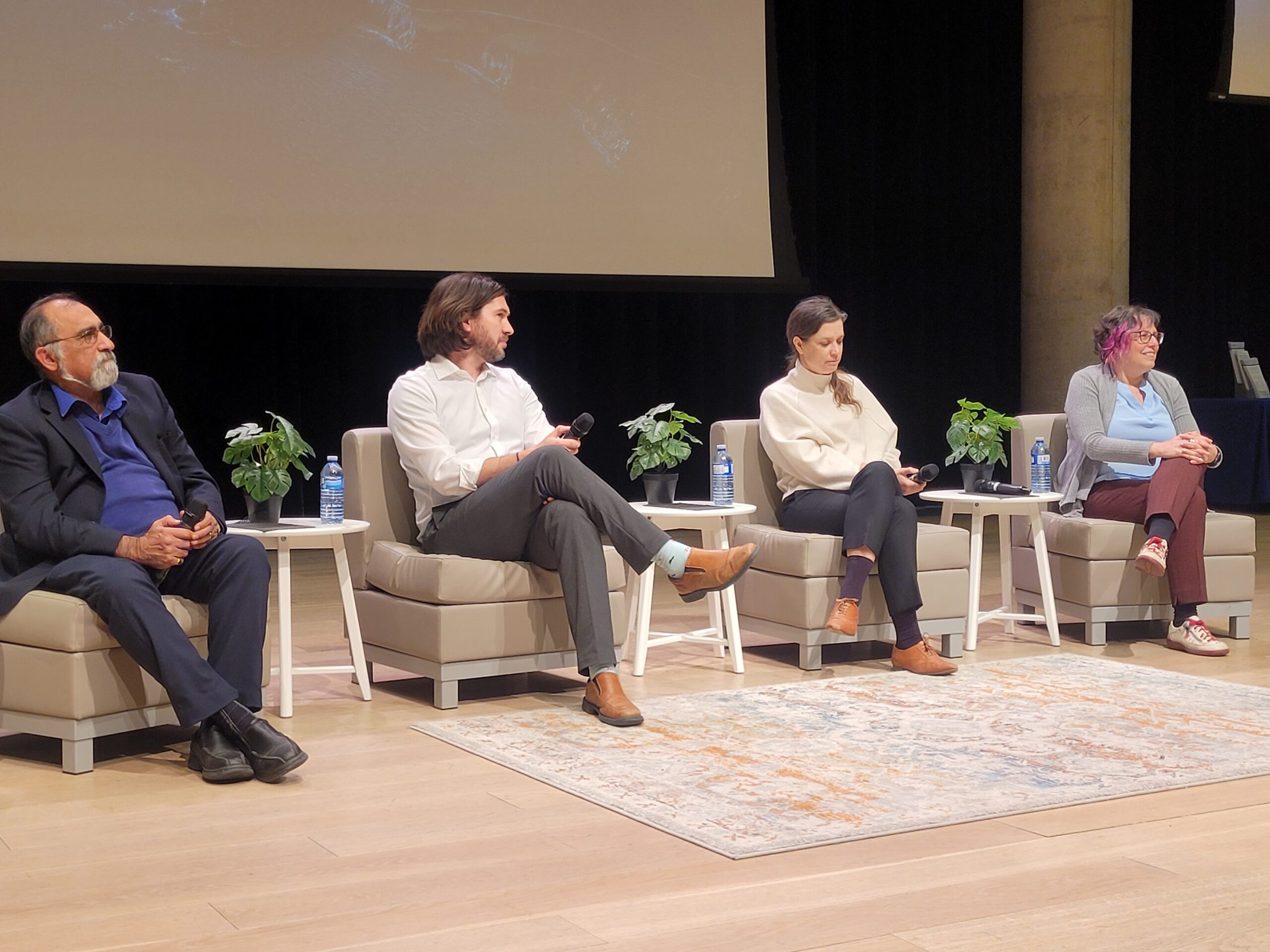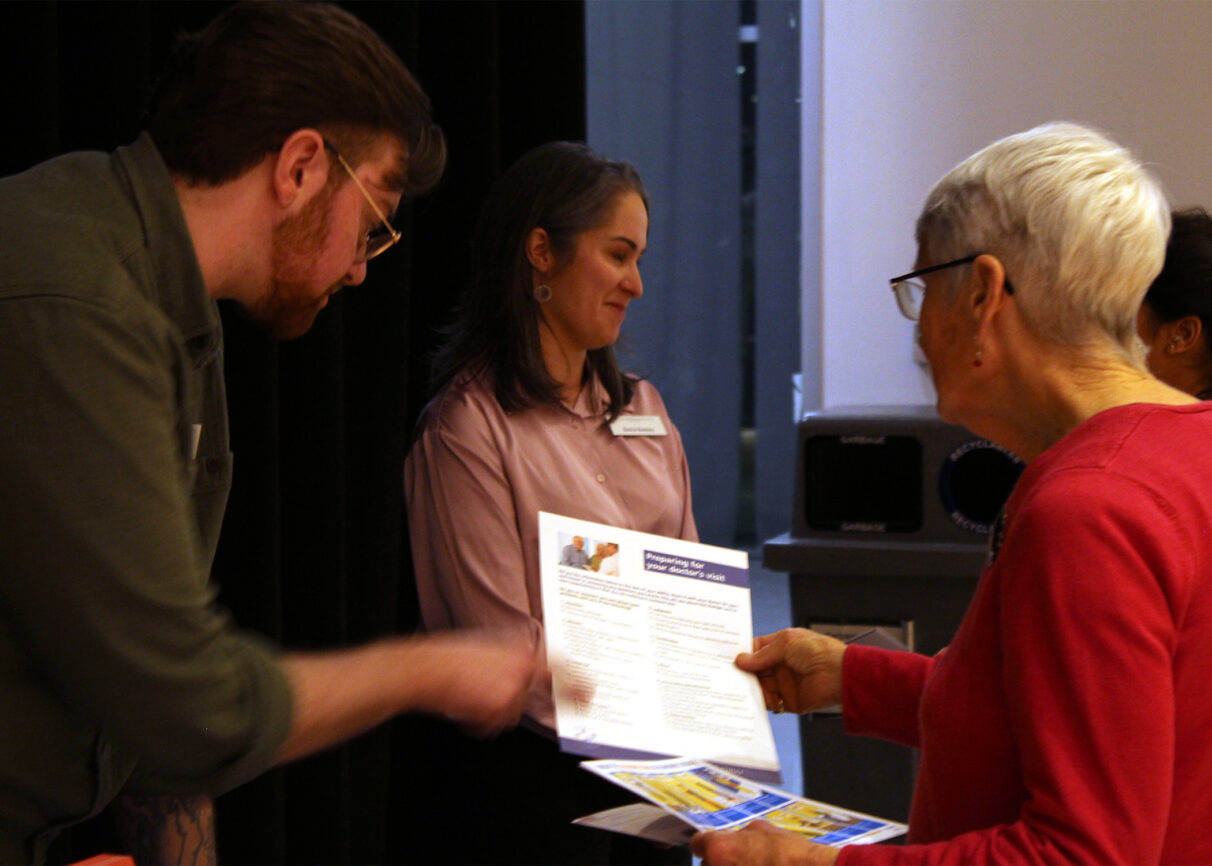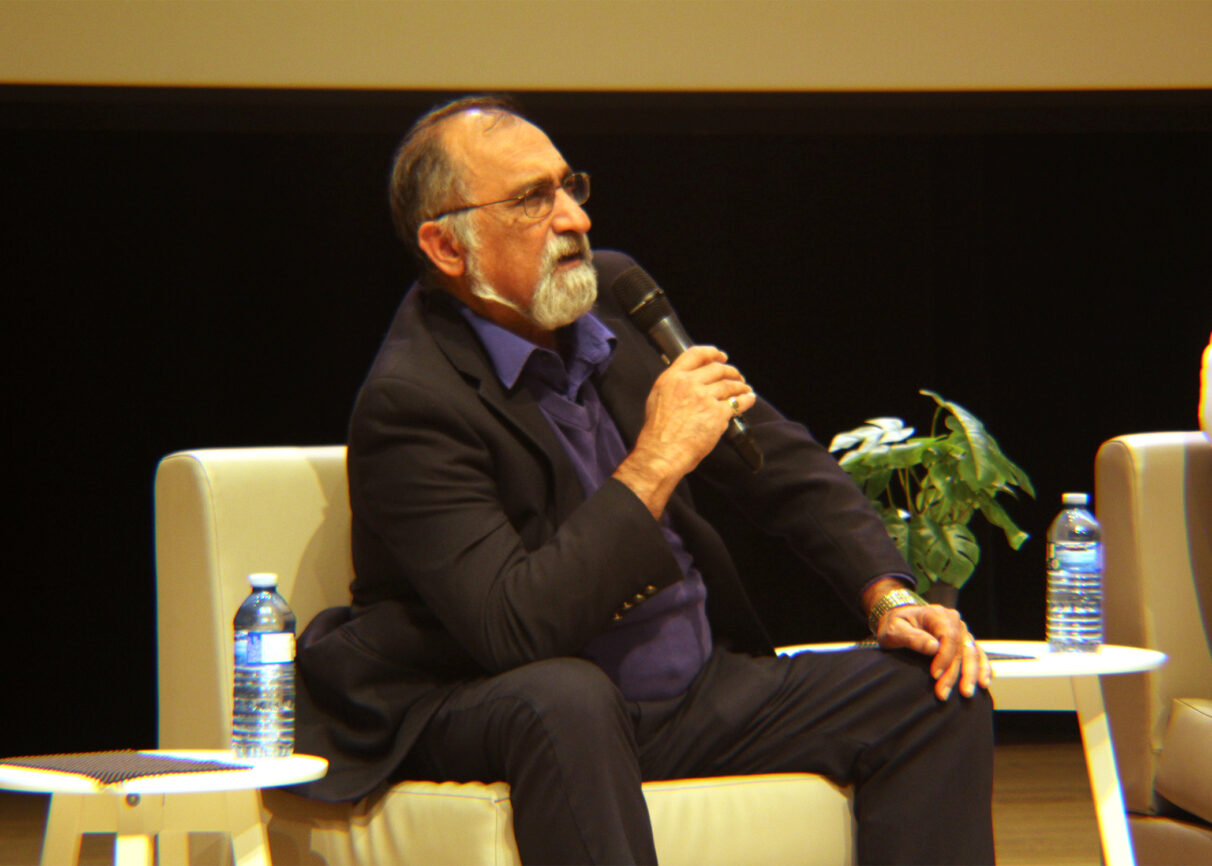Active lifestyle can stave off dementia, panel says
Dementia experts hold open forum to discuss recent findings

caption
Physicians Sultan Darvesh (far left), Samuel Searle (second from left), Paula McLaughlin (second from right) and Judith Godin (far right), participate in a dementia research panel in Paul O'Regan Hall.Lifestyle habits and general health are the main determinants in whether or not a person develops Alzheimer’s disease or dementia later and in life, an audience heard this week.
“The biggest thing is lifestyle factors,” said neuropsychologist Paula McLaughlin. “Taking care of yourself, vascular health, eating right, exercising, optimizing hearing, things like that.”
McLaughlin was speaking during an open forum held Monday at the Halifax Central Library’s Paul O’Regan Hall. A panel of four physicians met to discuss their most recent findings surrounding dementia in Nova Scotia in front of an audience of around 50.
The forum was a collaboration with the Alzheimer Society of Nova Scotia, a non-profit health charity for Nova Scotians suffering from Alzheimer’s and other dementias.

caption
Alzheimer Society of Nova Scotia representatives Marco Redden (left) and Sacha Nadeau (center) hand out pamphlets to attendees at the forum.The discussion ranged from the social to the clinical aspects of dementia research. The panellists said an early diagnosis for onset dementia is necessary for preventing and slowing down the effects of the disease, as it allows for early intervention and changes in lifestyle.
“I think early diagnosis a part of the background to this,” said Judith Godin, a geriatric medicine researcher at Dalhousie University. “There’s so many benefits that come with an early diagnosis because a lot of the treatments and the lifestyle changes that can help slow the disease progression … it allows more time for a person to plan.”
According to a 2022 report published by the Alzheimer Society Canada, more than 16,000 Nova Scotians live with dementia, a number that is projected to increase by 87 per cent by 2050. However, the same report suggests that a ten-year delay in onset dementia through early intervention could prevent over 71,000 new cases from arising by 2050.
Among the audience were married couple Ian Johnson and Olga Milosevich, both of whom had parents who suffered from the condition, and were especially keen to learn about the latest research.
It was exciting, the pair said following the forum. They said they were impressed with the progress that has been made and praised the researchers for their dedication. They also called for more open forums to educate the public on important health issues.
“I think we want to see this kind of forum on a regular basis,” Johnson said. “That will help us understand the situation and where we can be effective.”
While researchers are making progress in understanding and treating dementia, the panel also acknowledged certain roadblocks that made tackling the issue difficult.
Godin said stigma around dementia, particularly in the workplace, prevents people with dementia from getting diagnosed and receiving treatment, usually out fear of losing their jobs. Fixing this problem would require structural changes both in how workplaces operate and in people’s attitudes towards those living with dementia, she said.

caption
Neurologist Sultan Darvesh speaks during the forum on Monday.There were some questions the panellists were unable to answer with the current research available.
One data point they mentioned was that around 60 per cent of people living with dementia in Canada are women.
There are theories on why this is the case, such as a possible connection to hormones or to the fact that women live longer than men on average, but they are all inconclusive, said behavioural neurologist Sultan Darvesh, who is researching this question.
“This is an issue that needs to be addressed separately independently,” Darvesh said. “We don’t know what causes that, but there is a huge amount of research that needs to be done.”
About the author
Karsten Greene
Karsten Greene is a Master of Journalism student at King's. He's passionate about storytelling and hopes to make a difference through it.
